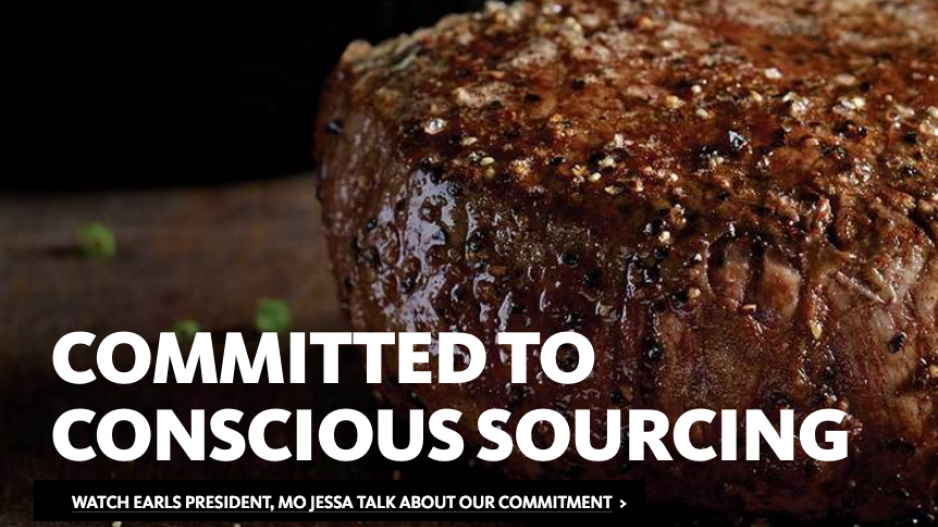Earls Restaurants’ decision to source humanely raised beef from Creekstone Ranch in Kansas has prompted a social media backlash because the decision means Earls will no longer buy beef from Canadian producers.
Some Twitter users said they would boycott the 66-restaurant chain, which is based in Vancouver, while others praised the company's decision.


Others questioned whether trucking meat further would be more environmentally friendly than sourcing from Canadian farms.

But the company said that a years-long effort to find ethical meat from a supplier that could provide the volumes required produced just one ranch in the United States.
Creekstone Ranch produces beef that is certified humane. Farms under the certification system are audited “to ensure animals are humanely treated and ethically cared for from birth to pasture to pen,” according to Earls’ website. The restaurant chain said the involvement of animal behaviourist Temple Grandin in designing Creekstone’s meat processing plant also played a part in the decision.
A&W Canada, also based in Vancouver, says it uses beef raised without steroids or additional hormones. The fast food chain says it uses beef raised in Alberta, Montana and Australia.
U.S. chain Chipotle has made its ethical food sourcing strategy a major part of its marketing strategy, promising to source pork only from farms that allow their pigs to “ freely root and roam outdoors or in deeply bedded barns.” In 2015 the company had to suspend the sale of some food items because company audits found some farms were not in compliance with Chipotle's requirements, and the fast food chain could not immediately replace the lost supply.
"There are very few farmers who raise animals in a way that meets our requirements—this is especially true when it comes to pigs,” the restaurant chain said in a statement at the time.
@jenstden




